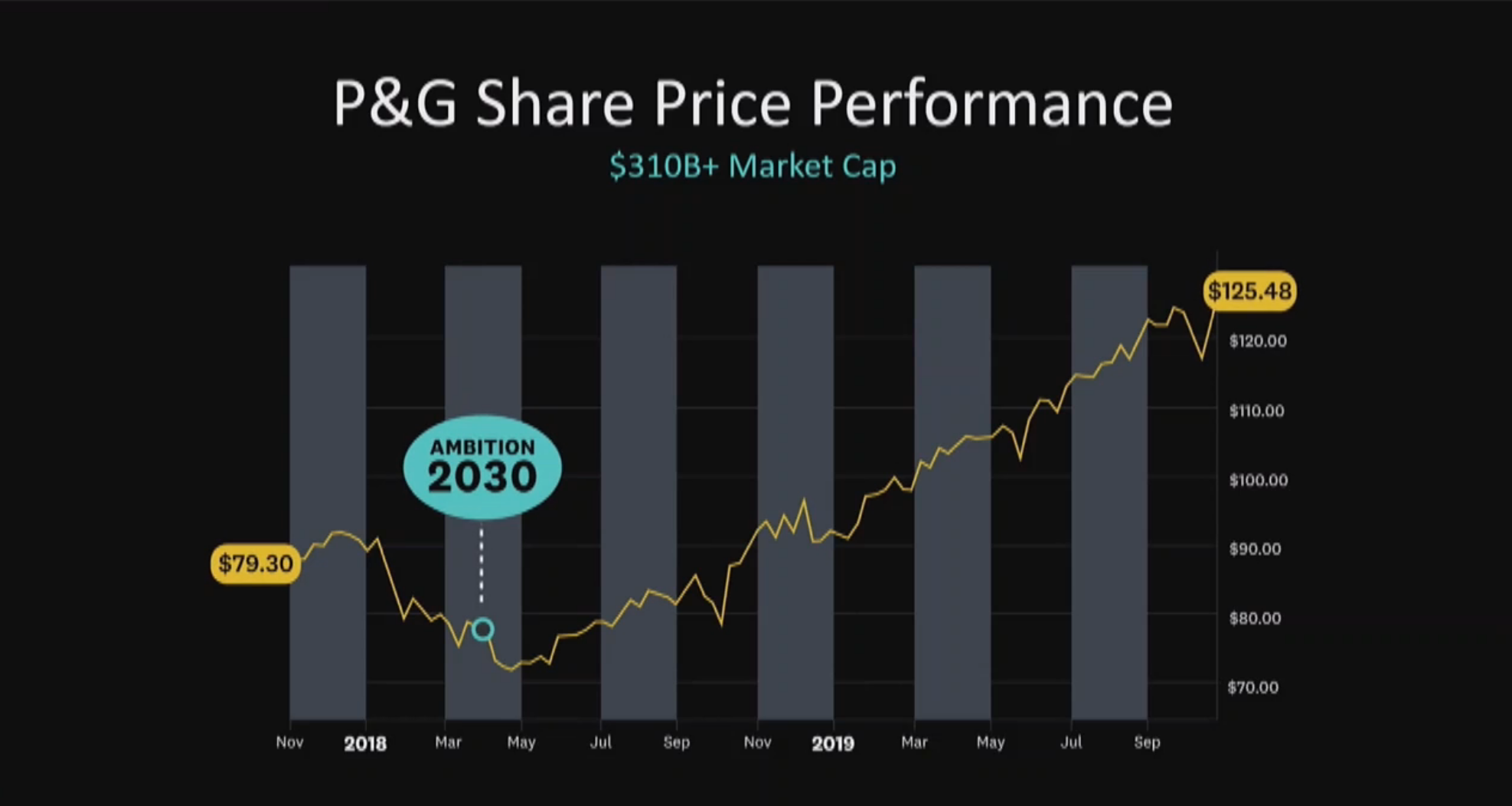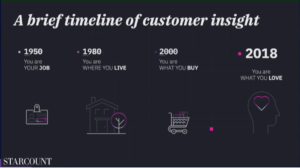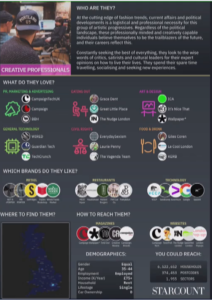1. The path to the Fortune 500 is full of good intentions – the most significant news from the digital and technology conference in Lisbon that took place last weekend is neither digital nor technological. It’s simply called “Purpose Marketing”.
If once upon a time, companies allowed themselves to allocate a few resources to promoting an agenda of ‘caring and concern’ towards their employees (primarily female employees), the wider community, and protecting the environment, today it seems that this mindset has become mandatory – so much so that it is no longer clear if the ‘caring’ agenda is an essential means for achieving the ultimate capitalist goal (maximizing profit for shareholders) or, rather, an overarching aim in and of itself.
This same ‘caring’ agenda, that once was in the realm of ‘corporate responsibility’, has become one of the chief concerns of every CEO. If, until recently, it mainly touched the large corporations, nowadays, it has already penetrated medium-sized companies, and even small-sized firms. In a feedback-obsessed world, nobody wants to remain on the side of those faking it. However, perhaps even more than all of this, it seems that the companies simply understood that promoting an agenda of caring simply pays off for them on many levels:
a) At Proctor & Gamble (P&G) they called it “Ambition 2030”. In the framework of this program, the company committed itself in several environmental fields (100% recycled packaging,100% use of renewable energy, and the significant reduction of pollution); to educate about the reduction of consumption (unclear how these go together); concern for workers’ welfare; and more. Judging by the growth in the value of their shares since the implementation of the program, if it was not entirely effectively, it certainly did not do any harm.

Credit – Presentation: Survey Monkey and Web Summit
b) At IKEA, they have already started to sell solar-energy-based products, and have also begun a pilot of renting items, instead of selling them. For instance, cribs and beds for kids. IKEA also committed to a transition process whereby 100% of its products will derive from recycled materials by 2025, and by then, all deliveries are supposed to be carried out using solely electric vehicles. The company is also pledging to work exclusively with suppliers that meet its ethical code and concern for their employees, primarily by providing professional training in new career fields to those who are liable to be replaced by robots…perhaps they will be the ones who will need to assemble them.
c) At Microsoft, they have joined, and contributed to, a transformative project called “Ocean Mind” that is aimed at monitoring in real time all the oceans across the world and cooperating with authorities in every country in order to protect them. For Microsoft, that invested great efforts to brand itself as being at the vanguard in the transition from a closed gardento an open garden, this fit like a glove.

Microsoft CEO embraces Ocean Mind CEO. Credit: Web Summit
2. Love of Data – “data is the new oil” said Clive Humby from the giant retail store, Tesco, as part of a journey to build a club of loyal customers for the chain that has yielded $60 million in just ten years. Who loves oil? No one. Who needs oil? All of us. Similar to oil, so too data, is wholly essential to marketeers, who remain slightly overwhelmed by it. However, data is also going through a revolution. If in the past, brands sought to forecast the behaviour of their users according to “where they live” and afterwards “what they bought”, today they try to understand what they like. The most convenient way to do this is by analysing their activity on social media: who they connect with, what they give “likes” to, what they choose to share, and what they do in the time they are not buying your products. It seems that this is also one of the only ways to compete with Amazon, that knows more about its customers than anyone else in the market.

The Evolution of Data. Credit: Web Summit and Starcount

The New Dashboard of Data – According to a user’s activity on social media. Credit: Web Summit and Startcount
3. AI AI AI. – Multiple languages were spoken at the conference (although Yiddish was not one of them). Following years of digital and marketing conferences in which AI became the star of the show, this time, everyone enjoyed bashing it. AI is not going anywhere. It has simply moved from being center stage to behind the scenes and gone from being the main buzz, to be a mere entry requirement. In other words, if you already integrate AI in your products/services/operations – great. If not, Houston, we have AI problem.
4. Let’s Queue – judging by the amount of content at the conference that dealt with traffic jams and queues, it seems that humanity has no greater challenge. The speakers on this topic were divided, overall, into two: those looking for a solution, and those taking advantage of the problem. In the first group, one can find for instance Uber, that is going from a company that provides transportation solutions, to a company of just, solutions (for example, when Uber discovered that a significant amount of its drivers did not have a bank account, it set up Uber Pay). Uber is now proposing Uber Boat in Nigeria (and soon in Venice?) or motorcycle taxis in India (and soon rickshaws?). However, the star of the first group, without any shadow of a doubt, is the flying taxi, that looks sexier, more imminent, and more real, than ever – an idea that sparks your imagination…., and all without polluting the environment, of course.
In the second group, one can find brands that understood that a traffic jam is also a business and branding opportunity: Burger King initiated a delivery service to those stuck in traffic jams in Mexico, saw that it worked very well indeed, and is now on the way to other cities. The company rode on the back of the buzz of its super-cool campaign in which it combined: real time data to target hungry drivers stuck in traffic, the “Voice” voice assistant to make an order, dynamic and personal billboards during traffic jams aimed at enticing drivers to order, a branded fleet of motorbikes that are there to supply the goods, and mainly, as is always the case, lots and lots of noise and incessant beeping. The campaign has pushed the Burger King delivery app to the top of the table in Mexico, and as long as they are ahead of McDonalds, from their point of view, traffic jams can last forever. At Gordon’s gin, they have also decided to take advantage of the queues, with a campaign that gives discounts at bars in airports in direct relation to the length of the queues in the airport itself. This got to the point where fake “queues” emerged by alcohol lovers working together. Will we see it here soon?

5. Saliva rules – we began with concerns for tomorrow, and we will finish with concerns for today. The world ultimately seeks, first and foremost, effective solutions to illnesses. The trend that already began several years ago, diagnosis via saliva, is gaining speed: two start-ups in at advanced stages made it to the semi-final of the start-up competition of Web Summit. One of them also won – Nutrix. Nutrix developed a chip that sticks onto teeth, takes a saliva sample and monitors it. Subsequently, it transmits the sugar level in the body to a dedicated app. Of course, sugar levels are only the tip of the iceberg with regards to what the company plans to discover about us through our saliva. The CEO of this important start-up also added a surprising pitch. She got on stage with her arm in a cast and told the audience the following: The bad news – she had an accident right here in Lisbon. The good news – when the doctor that put the cast on her heard about the start-up, he told her: you’re going to change the world. With all due to respect to big ideas that will save humanity, it seems that successful marketing, and a good story, is no less important.
Itay Tsamir is a Digital Strategist, Consultant, and Lecturer at the Ono Academic College & the Achva Academic College

Source: Globes
Please complete the form below to schedule a consultation.
Get notified about new articles